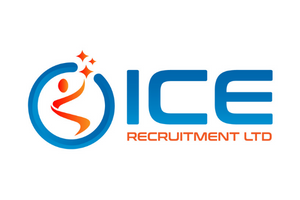
Candidates in the technology space have more power today than ever before. Not only do you have a wider selection of job opportunities to choose from in a skill-short marketplace, but you can also experiment with a range of working styles, from hybrid to remote employment.
Following 2022’s “Great Resignation” many candidates have had an opportunity to think more carefully about what they really want from their employers. Now is the perfect time to start seeking out roles that reflect your values, priorities, and preferences.
Job postings in the UK are currently 42% above pre-pandemic levels, meaning talented professionals have no shortage of options to choose from. Additionally, even in a time of economic uncertainty and recessions, 72% of employers are expecting to hire new staff, with only 13% saying they’re planning on making team members redundant any time soon.
While a candidate-focused market is excellent news for today’s employees it’s not without its challenges. In a time when you’re likely to be receiving multiple job offers from different companies, it’s important to get a clear idea of what you really want from your career.
Understanding which hiring trends are likely to influence your job search, and your eventual decision of who to work with will be crucial going into 2023.
Therefore, here at Ice Recruitment we’re listing some of the top critical hiring trends to be aware of in 2023.

1. Specialist Recruitment Partners Can Transform Your Career
As skill shortages in the IT industry continue to make hiring the right talent more complicated for business leaders, today’s candidates will have a host of opportunities to choose from. Unfortunately, choosing the right position to enhance your career and drive you towards your professional goals can be easier said than done.
A professional recruitment company could be the most important help you access to ensure you’re moving in the right direction. Recruiting specialists not only understand the job market in your industry, but also work with you to gain a deeper understanding of your values, priorities, skills, and expectations. This means they can help you to pursue the right roles for your unique needs.
Recruitment companies can assist you in finding suitable roles according to your ethics, skills, and characteristics. What’s more, they can also give you guidance when you’re dealing with multiple job offers from a host of different business leaders.
A specialist recruitment team will be able to listen and understand which parts of different job offers are likely to be deal breakers for you. They can help you to avoid accepting less appealing roles simply because you might be able to access a hiring bonus and assist you in focusing on the benefits and opportunities that really matter to you long-term.
They can also improve your chances of job offers from companies you’ve already assessed and felt a connection to.
Companies like Ice Recruitment can place you in the talent pipelines of leading brands, to ensure you’re always the first person a company calls when a position becomes available.
If you haven’t considered working with a recruitment partner up until now, this could be the perfect time to change your strategy. Your recruitment partner will give you all the guidance you need to seek out the roles most likely to drive high levels of job satisfaction.
2. Flexible Working Opportunities Will Continue to Evolve
Many candidates have found themselves looking for more flexible working opportunities in recent years. According to studies, the number of job descriptions offering remote and hybrid work options has increased by 274% since the beginning of the pandemic. The number of people searching for “remote work” has risen by a massive 674%!
As companies struggle to find the talent, they need close to home, they’re focusing on offering more flexible working strategies as a way of attracting a broader selection of candidates. This means you no longer need to be located in the same country or town as your chosen employer.
As a specialist, you should have more opportunities to find the ideal position for your needs, among employers from a wide range of different landscapes. However, it’s worth remembering not every business will be able to offer hybrid and remote work.
Not every position will be automatically suited to a remote working strategy. If you’re working in a position that requires your presence “in-house” you may need to be willing to work with your employer on other ways of embedding flexibility into your routine.
For instance, a recent Korn Ferry survey found 76% of professionals would prefer their work weeks to shift to less traditional hours. You may be able to ask your employer for the opportunity to work a four-day workweek, instead of a traditional 9-to-5 shift.
Alternatively, you could speak to your employer about opportunities for “work-life integration”. This involves giving you more flexibility to take breaks from work and input more hours later, so you can pick your kids up from school, attend appointments, and so on.
If flexible working opportunities are high on your list of employment demands, making sure you’re ready to negotiate your options will be essential.
3. Salaries and Benefits Are Transforming
One particularly good piece of news for candidates, is you may be able to expect higher salaries from your employer in the years to come. As a result of the cost-of-living crisis and an impending recession, many business leaders know they now need to offer higher remuneration to top talent.
Over the last 12 months, professionals in tight labour markets have been increasingly accessing substantial wage gains. However, it’s worth remembering that it’s unlikely many employers will be able to continue offering wage hikes forever.
Rather than focusing entirely on the salary you can access from your intended employer, it may be worth looking at the benefits they provide too. A great benefits package can make a lower-paying job more appealing, by providing access to greater work/life balance and well-being.
For instance, many business leaders are beginning to focus on benefits that support employees in feeling more supported at work. After all, 90% of employees now believe how they feel at work is important to their overall quality of life.
Look for perks that demonstrate a commitment to employee well-being and happiness, such as increased paid time off, healthcare support, and access to mental health support.
If your employer is willing to work with you to avoid burnout, improve your overall wellness, and make your life easier, the chances are they’ll deliver a higher level of job satisfaction.
4. Companies Continue to Upskill and Reskill Workers
While the demand for talent is increasing at an incredible pace, we’ve found many of our candidates are concerned about the skills they’re taking with them into new roles. The industry is changing at a rapid pace, as a result of digital transformation. Many candidates are concerned they may not have the training required to exist in a tech-focused landscape.
Around 61% of today’s employees are worried they may not have the skills they need to thrive in their careers within the next five years. If you belong to this group, now might be a good time to start looking for new educational and training opportunities.
Look at some of the latest job descriptions posted for roles you’re interested in, and find out if there are any gaps between your current skills and the demands on workers. Your recruitment professional should be able to give you some useful advice on where to focus your education.
Notably, you can also look for employers offering a higher level of on-the-job training. Many business leaders are recognising the need to upskill, reskill, and even mentor professionals as they continue to move through new positions in the industry.
When searching for the right employment opportunity, you can focus your attention on finding employers willing to invest in your future development and ongoing training. Once again, your recruitment partner will be able to assist with this process, providing insights into which employers offer the best training opportunities on the job.
Just remember, you will need to commit to consistently seeking out and completing educational opportunities whenever they’re available, so you can show your value to your employer.
5. Employers Become More Diverse, Equitable, and Inclusive
While focus on DEI initiatives began to drop slightly during 2022, most experts agree that employers will reignite their focus on diversity, equity, and inclusion in 2023. After all, today’s leaders want to attract the next generation of talent. For Gen Z and younger workers, DEI initiatives are an important factor in determining where to work.
74% of today’s employees say corporate investment in equity, inclusion, and diversity is either very or somewhat important in their decision of where to work. As employers become more aware of this fact, they will continue to invest in ways of making every team member feel “included”.
Already, many leading employers are turning to recruitment partners like us for help building a more inclusive recruitment process. They know that businesses with ethically and gender-diverse teams can outperform their peers by up to 36%, and they’re ready to evolve.
For candidates, focusing on finding an employer with a strong DEI strategy can ensure you access the right company culture in your future career. You’ll be able to share ideas with a wide range of people, and engage with different perspectives when looking for ways to thrive in your role.
Ensure the specialist recruiter you work with understands the diversity, equity, and inclusion efforts shown by the clients they work with before you progress with your application.
Some key points to look out for include:
- Inclusive job ads: Job descriptions should avoid any discriminatory language, like “young go-getter”, or anything which suggests a desire for a specific cultural group.
- Various recruitment strategies: The most diverse employers seek out talent from a range of environments, including social media, referrals, and college graduates.
- Internal inclusion programs: Look for evidence your employer will find ways to promote inclusive work, such as mentorship programs.
- Excellent manager training: Good employers should consistently invest in training their managers to minimise unconscious bias.
6. Employer Brands will Influence Your Decisions
As a leading recruitment partner, part of our role is promoting our clients to candidates, highlighting their unique brand and culture. The chances are the employer branding connected to each company will have a huge impact on who you decide to work with.
Around 83% of employers now say employer branding makes a significant difference to their ability to attract and retain talent. As such, you’re likely to see a higher number of companies focusing on finding ways to highlight their unique brand.
Look out for evidence of strong branding on job descriptions, websites, and content produced by internal employees from the team you’re thinking of working with. Focus on finding employers with a brand which concentrates heavily on employee wellbeing and support.
During an age of “quiet quitting” and growing burnout, employees will thrive best in environments where their leadership teams take their wellbeing seriously. If your potential employer frequently invests in supporting their team members, overcoming issues of burnout, and protecting their team’s physical and mental health, this is a good sign.
As mentioned previously, we’re in a skill-short market, which means you have a range of options available to you when it comes to choosing the right environment to work in. Look for an employer who can invest in your ability to thrive and survive in the technology space.
7. Don’t Underestimate Candidate Care
Part of finding an empathetic, caring, and supportive employer in 2023, is looking at each company’s approach to candidate care. Today’s business leaders are rapidly learning that if they want to engage, and retain top talent, they need a strong strategy for building relationships with candidates.
Increasingly, candidates like yourself are going into interviews with more questions to ask your potential employer about what you can expect in terms of culture, work/life balance and inclusion. Be ready to interview each hiring manager to ensure you’re choosing the roles that work for you.
As you progress through the hiring journey, make sure you pay attention to how heavily your employer focuses on candidate care. Do they offer a range of flexible interviewing options to suit you, including online and virtual interviews? Are they committed to keeping you informed every step of the way with transparent communication?
How does your potential employer assist you in visualising a future with their company? Are they committed to helping you progress through promotions and training?
It may also be worth reconsidering some of the previous employers you’ve worked with in the past after they make the commitment to improve their candidate care and recruitment strategies.
Making sure you end any relationships with previous employers on a positive note should ensure you have the option to return to a previous workplace if your career path leads you in that direction.
Summary
The recruitment landscape for may be challenging, but it’s also brimming with opportunities. As companies continue to invest in growth and talent acquisition, you’re sure to have plenty of options when it comes to choosing where to work.
2023 will see a continuation of an unpredictable recruitment landscape, where skill shortages reign, and employers need to work harder to find the talent they need.
This year, employees will need to think more carefully about how they can choose the best opportunities to suit their career goals and vision.
Specialist recruiters will offer valuable assistance to candidates who need help sorting through their options, and achieving their professional targets.
It’s an interesting time for all of us. Make sure you’re prepared.
Good Luck!



